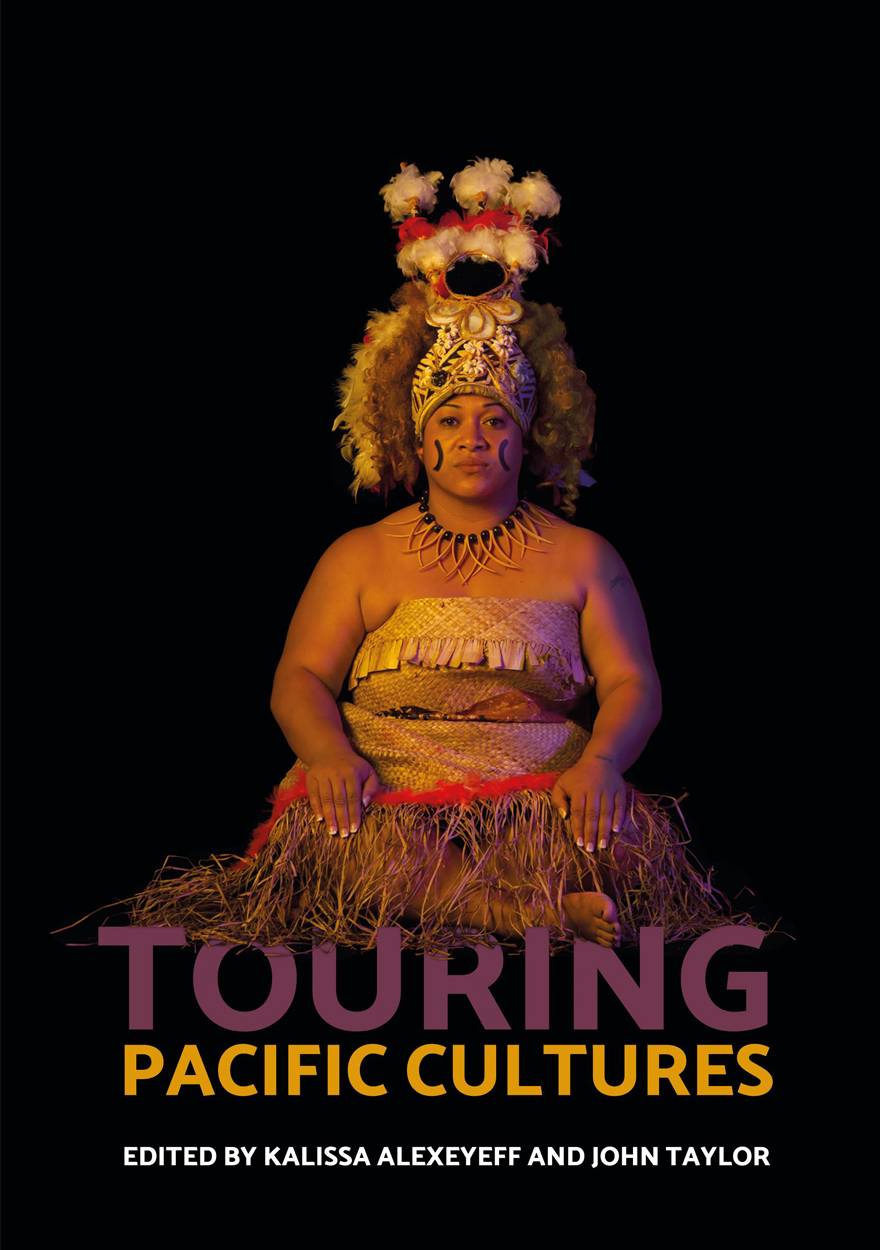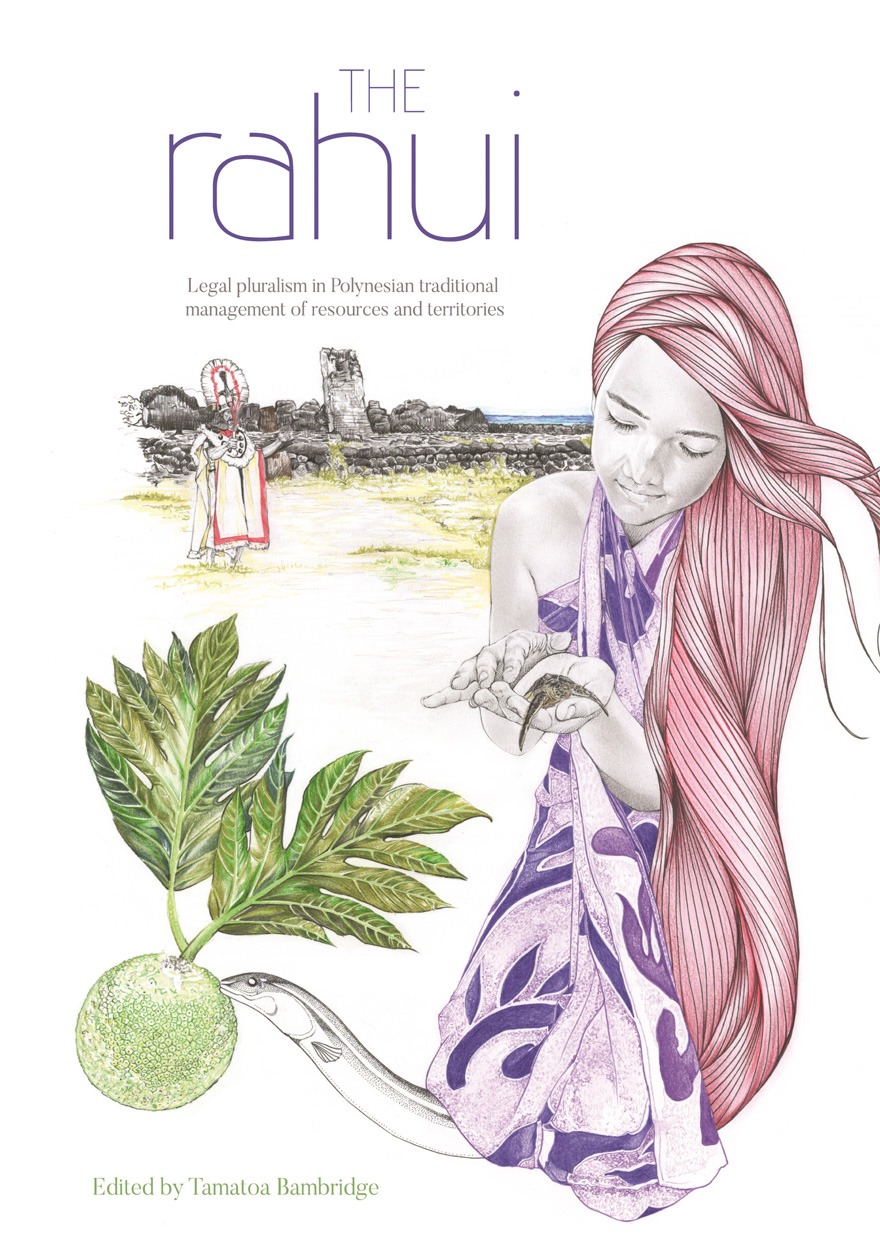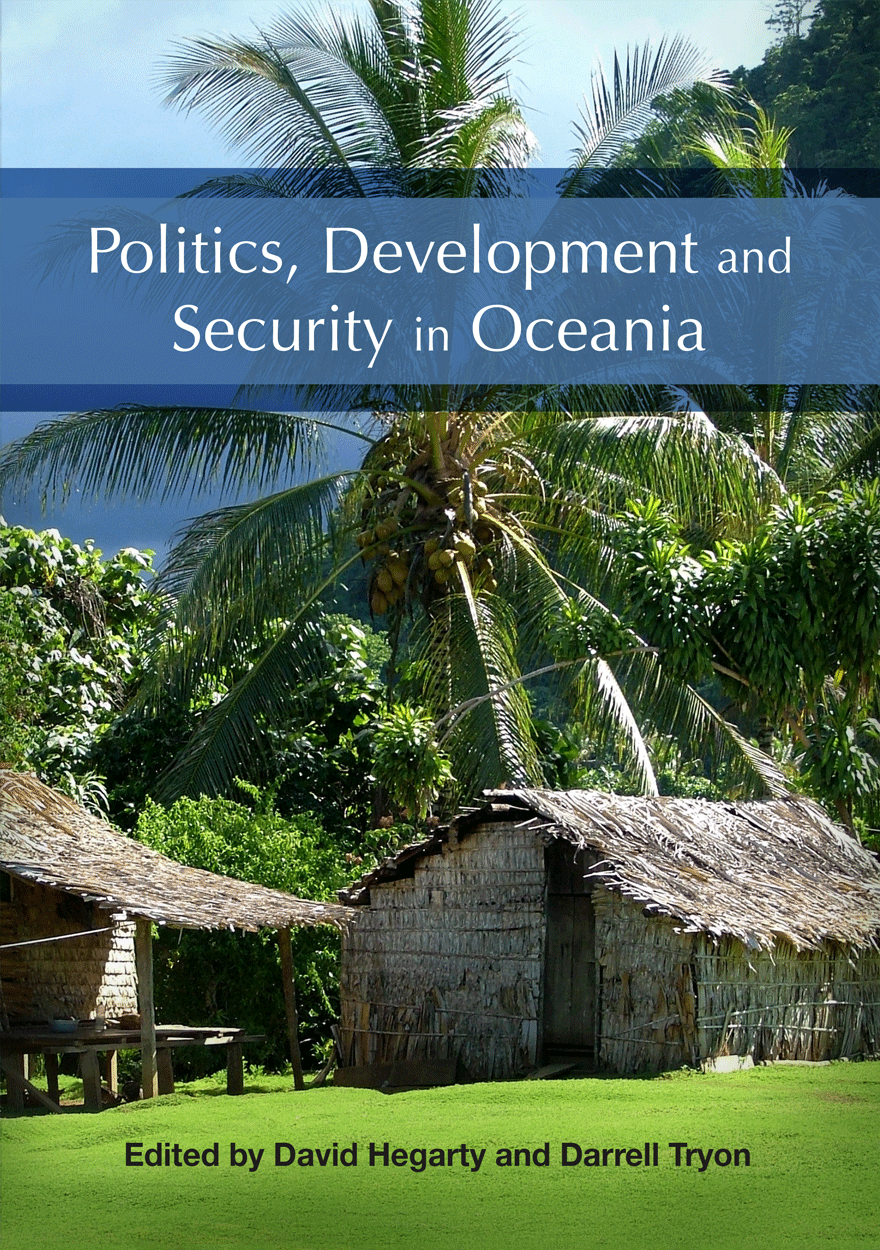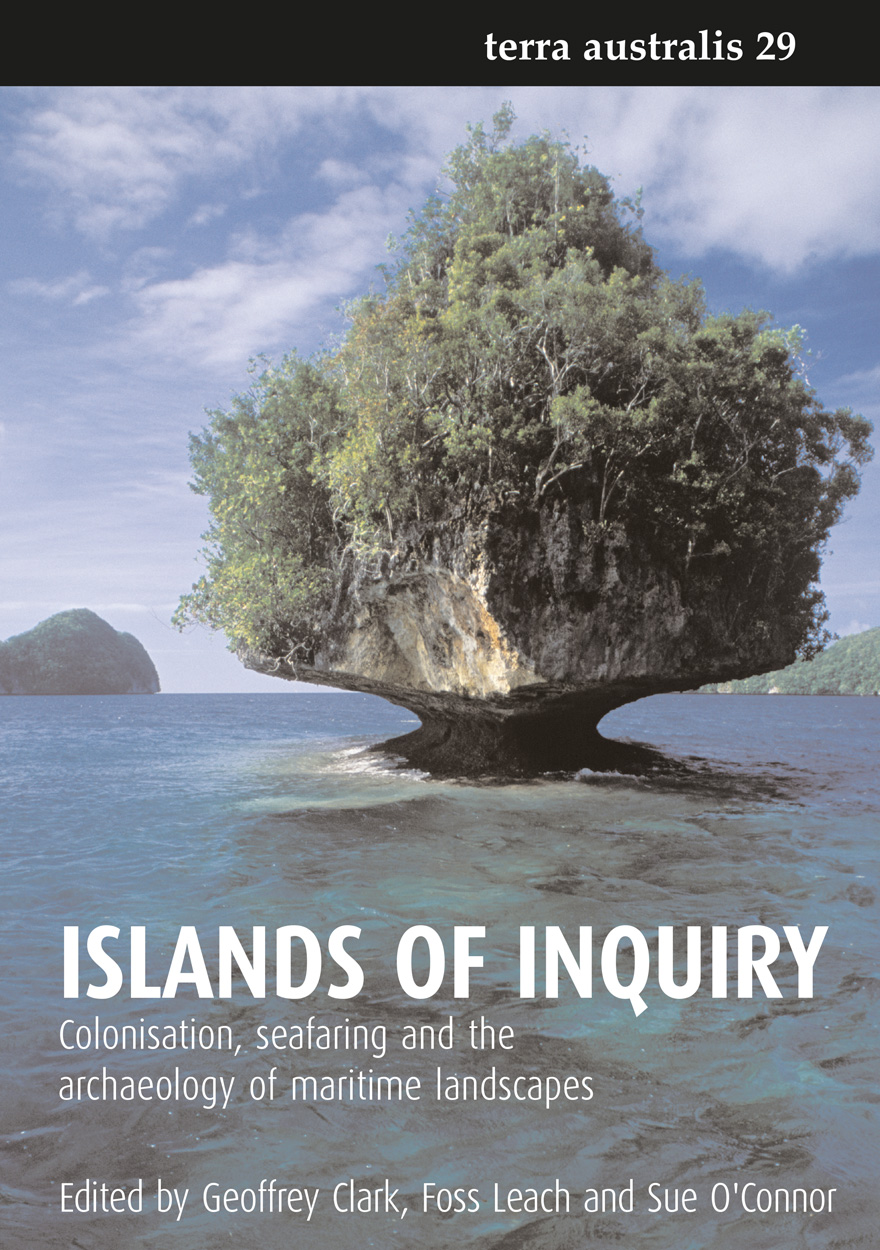Search titles
Displaying results 1 to 6 of 6.

Island Rivers »
Fresh Water and Place in Oceania
Edited by: John R. Wagner, Jerry K. Jacka
Publication date: June 2018
Anthropologists have written a great deal about the coastal adaptations and seafaring traditions of Pacific Islanders, but have had much less to say about the significance of rivers for Pacific island culture, livelihood and identity. The authors of this collection seek to fill that gap in the ethnographic record by drawing attention to the deep historical attachments of island communities to rivers, and the ways in which those attachments are changing in response to various forms of economic development and social change. In addition to making a unique contribution to Pacific island ethnography, the authors of this volume speak to a global set of issues of immense importance to a world in which water scarcity, conflict, pollution and the degradation of riparian environments afflict growing numbers of people. Several authors take a political ecology approach to their topic, but the emphasis here is less on hydro-politics than on the cultural meaning of rivers to the communities we describe. How has the cultural significance of rivers shifted as a result of colonisation, development and nation-building? How do people whose identities are fundamentally rooted in their relationship to a particular river renegotiate that relationship when the river is dammed to generate hydro-power or polluted by mining activities? How do blockages in the flow of rivers and underground springs interrupt the intergenerational transmission of local ecological knowledge and hence the ability of local communities to construct collective identities rooted in a sense of place?

Touring Pacific Cultures »
Edited by: Kalissa Alexeyeff, John Taylor
Publication date: December 2016
Tourism is vital to the economies of most Pacific nations and as such is an important site for the meaningful production of shared and disputed cultural values and practices. This is especially the case when tourism intersects with other important arenas for cultural production, both directly and indirectly. Touring Pacific Cultures captures the central importance of tourism to the visual, material and performed cultures of the Pacific region. In this volume, we propose to explore new directions in understanding how culture is defined, produced, experienced and sustained through tourism-related practices across that region. We ask, how is cultural value, ownership, performance and commodification negotiated and experienced in actual lived practice as it moves with people across the Pacific?
‘This collection is a welcome addition to tourism studies, or perhaps we should say post- or para-tourism. The essays bring out many facets and experiences too quickly bundled under a single label and focused exclusively on “destinations” visited by “outsiders”. Tourism, we see here, actively involves many different populations, societies, and economies, a range of local/global/regional engagements that can be both destructive and creative. Western outsiders aren’t the only ones on the move. Unequal power, (neo)colonial exploitation and capitalist commodification are very much part of the picture. But so are desire, adventure, pleasure, cultural reinvention and economic development. The effect, overall, is an attitude of alert, critical ambivalence with respect to a proliferating historical phenomenon.
A bumpy and rewarding ride.’
— James Clifford, Professor Emeritus, University of California, Santa Cruz

The Rahui »
Legal pluralism in Polynesian traditional management of resources and territories
Edited by: Tamatoa Bambridge
Publication date: March 2016
This collection deals with an ancient institution in Eastern Polynesia called the rahui, a form of restricting access to resources and/or territories.
While tapu had been extensively discussed in the scientific literature on Oceanian anthropology, the rahui is quite absent from secondary modern literature. This situation is all the more problematic because individual actors, societies, and states in the Pacific are readapting such concepts to their current needs, such as environment regulation or cultural legitimacy. This book assembles a comprehensive collection of current works on the rahui from a legal pluralism perspective. This study as a whole underlines the new assertion of identity that has flowed from the cultural dimension of the rahui. Today, rahui have become a means for indigenous communities to be fully recognised on a political level. Some indigenous communities choose to restore the rahui in order to preserve political control of their territory or, in some cases, to get it back. For the state, better control of the rahui represents a way of asserting its legitimacy and its sovereignty, in the face of this reassertion by indigenous communities.

France in the South Pacific »
Power and Politics
Authored by: Denise Fisher
Publication date: May 2013
France is a Pacific power, with three territories, a military presence, and extensive investments. Once seen by many as a colonial interloper in the South Pacific, by the early 2000s, after it ended nuclear testing in French Polynesia and negotiated transitional Accords responding to independence demands in New Caledonia, France seems to have become generally accepted as a regional partner, even if its efforts concentrate on its own territories rather than the independent island states.
But France’s future in the region has yet to be secured. By 2014 it is to have handed over a set of agreed autonomies to the New Caledonian government, before an independence referendum process begins. Past experience suggests that a final resolution of the status of New Caledonia will be divisive and could lead once again to violent confrontations. In French Polynesia, calls continue for independence and for treatment under UN decolonisation procedures, which France opposes. Other island leaders are watching, so far putting faith in the Noumea Accord, but wary of the final stages. The issues and possible solutions are more complex than the French Pacific island population of 515,000 would suggest.
Combining historical background with political and economic analysis, this comprehensive study offers vital insight into the intricate history – and problematic future – of several of Australia’s key neighbours in the Pacific and to the priorities and options of the European country that still rules them. It is aimed at policy-makers, scholars, journalists, businesspeople, and others who want to familiarise themselves with the issues as France’s role in the region is redefined in the years to come.

Politics, Development and Security in Oceania »
Edited by: David Hegarty, Darrell Tryon
Publication date: April 2013
The chapters in this volume canvass political change and development across the Pacific Islands from a variety of perspectives, each contributing to the analysis of a region growing in complexity and in confidence. They fall neatly into three sections: Oceania and its Inheritance; Oceania – Current Needs and Challenges; and Oceania and its Wider Setting.
The new states of the Pacific have demonstrated considerable resilience, and in many cases, an extraordinary capacity to bounce back from difficulty and to maintain optimism for the future. The continuing professionalisation of public management across the region is building on that tradition. The growth of civil society organisations is also beginning to play a positive role in policy and implementation. Donors are becoming more coherent in their strategies, more attuned to the realities of generating development outcomes in small island states, and are beginning to acknowledge and map progress.
This book explores these themes of governance, development and security that signal both continuity and change in the Pacific’s pattern of islands.

Islands of Inquiry »
Colonisation, seafaring and the archaeology of maritime landscapes
Edited by: Geoffrey Clark, Foss Leach, Sue O'Connor
Publication date: June 2008
This collection makes a substantial contribution to several highly topical areas of archaeological inquiry. Many of the papers present new and innovative research into the processes of maritime colonisation, processes that affect archaeological contexts from islands to continents. Others shift focus from process to the archaeology of maritime places from the Bering to the Torres Straits, providing highly detailed discussions of how living by and with the sea is woven into all elements of human life from subsistence to trade and to ritual. Of equal importance are more abstract discussions of islands as natural places refashioned by human occupation, either through the introduction of new organisms or new systems of production and consumption. These transformation stories gain further texture (and variety) through close examinations of some of the more significant consequences of colonisation and migration, particularly the creation of new cultural identities. A final set of papers explores the ways in which the techniques of archaeological science have provided insights into the fauna of islands and the human history of such places. Islands of Inquiry highlights the importance of an archaeologically informed history of landmasses in the oceans and seas of the world.



